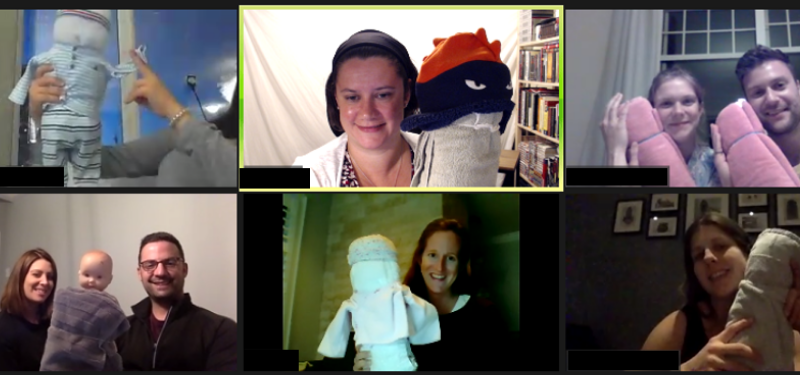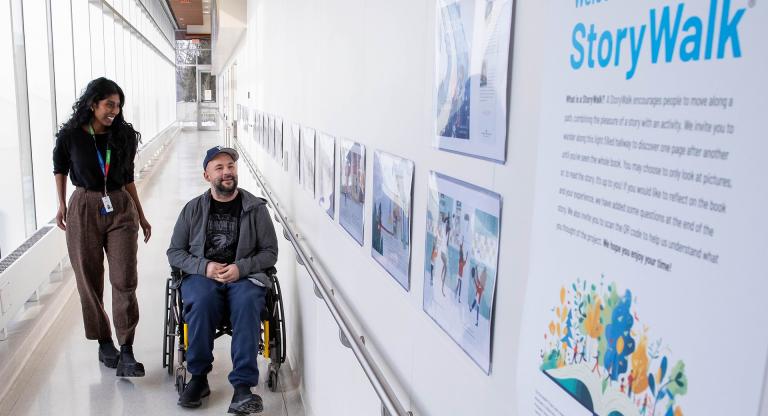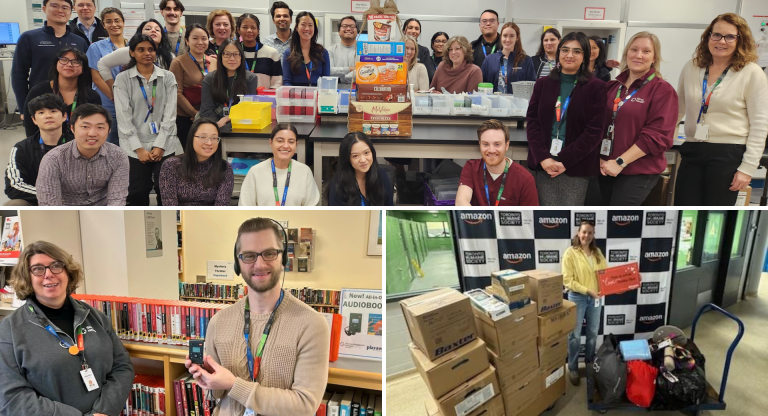Prenatal classes from the comfort of home

Physical distancing guidelines have changed the way we interact and care for patients, and when appropriate, our care has turned virtual. Mount Sinai Hospital, where more than 7,000 babies a year are delivered, is typically bustling with parents-to-be, including at our host of prenatal education classes.
When the pandemic began, Susan Georgoussis, registered nurse and Prenatal Education Coordinator for Mount Sinai’s Women’s and Infants’ Health program, worked closely and quickly with class instructors to modify the many prenatal classes offered. “Our participants look forward to attending these classes as a part of their pregnancy journey and we didn’t want them to miss out on this experience because of the pandemic.”
The goal was to provide participants with effective education – virtually. Classes cover a wide range of topics depending on the stage of pregnancy a patient might be in, from preparing for childbirth, preparing for parenthood, breastfeeding and understanding infant sleep.
The switch to virtual classes means that participants from anywhere in Canada can tap into Sinai Health’s experts. One of the more popular classes, Becoming a Grandparent, is a new addition that prepares expectant grandparents in supporting with baby care during the early months and participants have joined from as far as British Columbia to learn about the latest research and recommendations.
“We have also seen a shift in some of the topics we have to cover in this particular class as a result of the pandemic,” adds Susan. “Families are asking questions like – What kind of precautions should I take when meeting baby for the first time? and How do I support my family virtually because I can’t be there in person?”
Margaret Mooney, a soon-to-be first-time grandparent, learned about this class through her son, a soon-to-be dad. “What a nifty and unique idea to have a class for grandparents. Things like sleep and safety have changed since I was a parent and it is a worthwhile class for expecting families.”
For some of the offerings such as CPR & Safety, there’s a new layer of creativity and engagement among the participants. “When we had people come into the classroom, we provided them with dolls to practice techniques on, which is important especially when teaching something like CPR. Now, our instructors ask participants to prepare ahead at home by making a towel baby or using a stiff stuffed animal,” shares Susan. “One participant even tried using a bag of sugar.”
For now, the virtual classes are here to stay. While being able to offer additional timeslots, features such as real-time online polling and the ability for participants to ask questions privately allows the instructors to adapt the programming to tailor the experience for each group.












